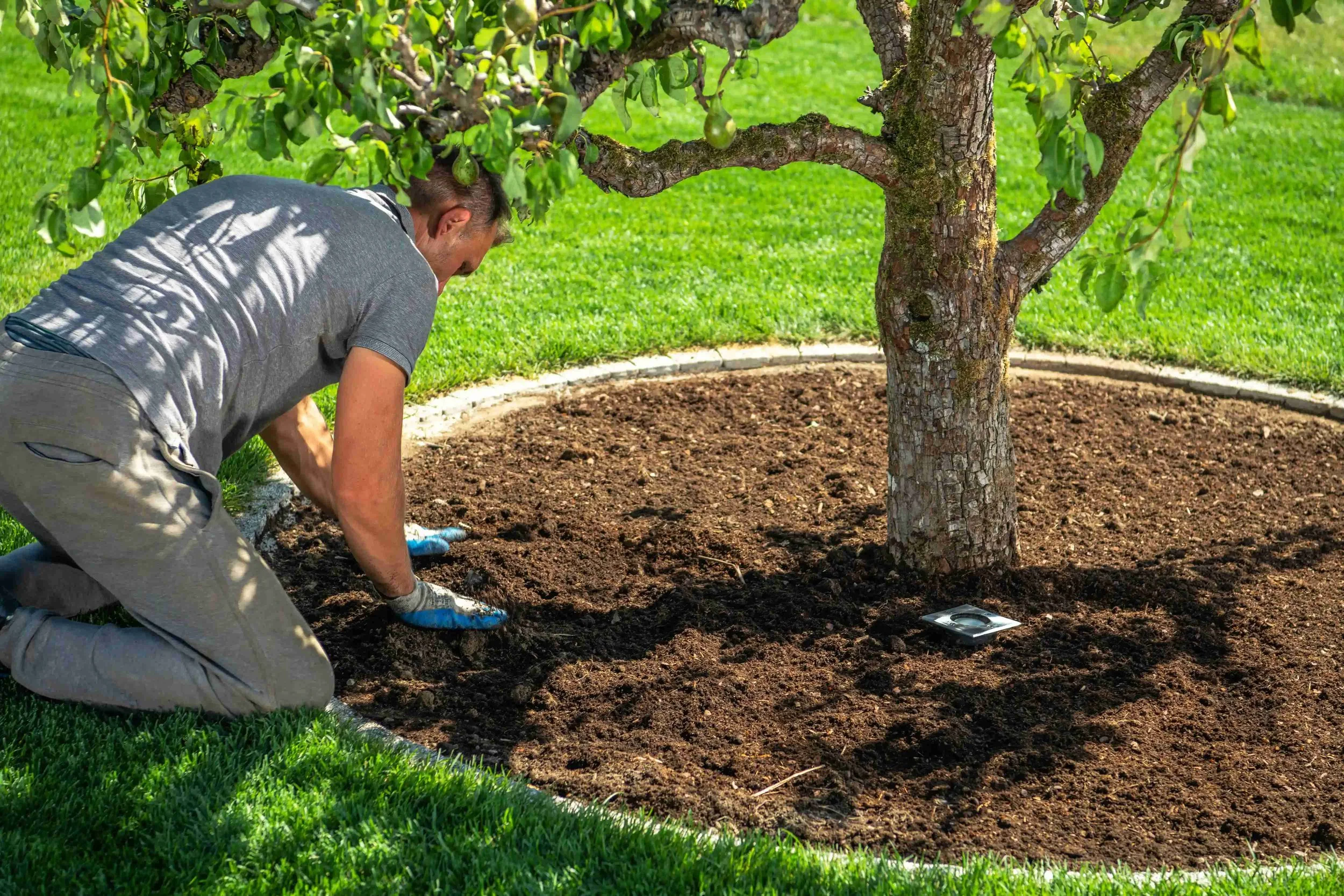Complete Guide To Mulching Your Landscape
By Gebhard Horticulture | Morris County, NJ
Why Mulching is Important for Your Landscape?
If you’ve ever walked past a well-kept garden in Morris County and thought, “Wow, that looks polished”—chances are mulch had a lot to do with it. Mulching isn’t just about making your flower beds look neat; it’s a powerful landscaping tool that protects your soil, improves plant health, and saves you time on maintenance.
We’ve seen firsthand how the right mulch can transform an ordinary yard into a thriving, low-maintenance landscape. And because we believe every homeowner deserves both beauty and function, we’ve created this Complete Guide to Mulching Your Landscape.
Benefits of Mulching
Mulch is like the unsung hero of landscaping. Done right, it works 24/7 behind the scenes. Here’s why homeowners in Morris County love it:
Weed Control & Low-Maintenance Grounds Management
No one enjoys spending weekends pulling weeds. Mulch creates a barrier, blocking sunlight and stopping weed seeds from sprouting. Less weeding, more enjoying your yard.
Moisture Retention & Water Savings
Our summers can get hot. Mulch locks in soil moisture, so your plants don’t dry out as quickly. You’ll water less—and your utility bill might thank you too.
Temperature Moderation & Frost Protection
Think of mulch as a blanket. In summer, it keeps roots cool; in winter, it insulates against frost. That stability helps plants grow stronger year-round.
Soil Erosion Prevention & Soil Health Enhancement
Rainstorms are no stranger to New Jersey. Mulch helps prevent soil from washing away and, if organic, breaks down into nutrients that feed your garden naturally.
Aesthetic Appeal
Let’s be real—mulch looks good. Neatly edged beds filled with rich, dark mulch make your home look cared for and increase curb appeal instantly.
Types of Mulch: Choosing What’s Right
Not all mulches are created equal. Here’s a breakdown to help you choose wisely:
Organic Mulches
Bark & Wood Chips: Long-lasting, great for flower beds.
Leaves, Straw, Grass Clippings: Budget-friendly, decompose quickly into healthy compost.
Compost & Cardboard Layers: Fantastic for enriching soil and reducing waste.
Organic mulch improves soil health as it decomposes, making it a favorite for gardeners who want long-term benefits.
Inorganic Mulches
Gravel & Stone: Ideal for pathways or decorative landscapes.
Rubber & Plastic: Durable, but not eco-friendly.
Landscape Fabric: Prevents weeds but needs careful installation.
Inorganic mulch won’t enrich your soil, but it’s durable and low-maintenance.
Sustainable Options
Eco-conscious? Try sheet mulching or dye-free, chemical-free mulches. These sustainable solutions protect your plants and the environment at the same time.
When & How Much Mulch to Apply?
Timing and depth matter more than you might think.
Best Timing: Spring (to lock in moisture before summer heat) or fall (to protect roots before winter).
Proper Depth: Aim for 2–4 inches. Too little won’t do much; too much suffocates roots.
How to Calculate Needs: Measure your garden beds (length × width), decide on depth, and multiply. Divide by 12 to convert inches to cubic feet.
👉 Pro tip: If math isn’t your thing, We can measure and deliver exactly what you need.
Common Mulching Mistakes & How to Avoid Them
Even seasoned gardeners get this wrong. Here are pitfalls to avoid:
Volcano Mulching: Piling mulch against tree trunks leads to decay. Keep mulch a few inches away.
Over-mulching: More isn’t better. Too thick a layer suffocates roots.
Poor Quality Mulch: Avoid chemically treated or dyed wood that can harm soil and plants.
Mulch Maintenance & Refresh Cycle
Mulch isn’t a one-and-done job. Organic mulch breaks down over time, which is actually good for your soil—but it means refreshing annually.
Spring: Add a fresh layer for weed control and aesthetics.
Fall: Top up to insulate plants before frost.
Stone/Gravel: Rake and clean as needed; less frequent replacement.
Think of it like changing the oil in your car—small upkeep, big payoff.
Advanced & Sustainable Mulching Techniques
If you want to go beyond the basics, here are some pro tips:
Sheet Mulching (No-Dig Gardens): Layer cardboard, compost, and mulch for a healthy, low-maintenance bed.
Mulching for Water Conservation: Perfect for drought-sensitive areas or eco-friendly landscaping.
Native Landscaping: Pair the right mulch with local plants for a sustainable, low-effort yard.
At Gebhard Horticulture, we specialize in these eco-friendly practices for Morris County homeowners who care about both beauty and sustainability.
Frequently Asked Questions (FAQ)
-
Hardwood bark mulch is popular—it lasts long, looks great, and enriches the soil.
-
Not if you choose quality mulch and apply it correctly. In fact, mulch can discourage some pests by creating a barrier.
-
Yes, if it’s clean and not moldy. Fluff it up to restore appearance and airflow.
-
Organic mulch: once a year. Inorganic: every few years with occasional cleaning.
Partner with Us!
Mulching may look simple, but the difference between a quick job and a professional finish is night and day. Done right, mulch saves water, fights weeds, protects your plants, and makes your property shine.
At Gebhard Horticulture, we take the guesswork out of mulching. Whether you need delivery, installation, or seasonal refresh, our team has the tools, knowledge, and local expertise to keep your Morris County landscape thriving year-round.
👉 Ready to transform your yard? [Request a Quote Today] or [Schedule Your Mulching Service].
Your landscape deserves better than just mulch. It deserves care, precision, and a professional touch—because a beautiful yard starts with the ground beneath it.



